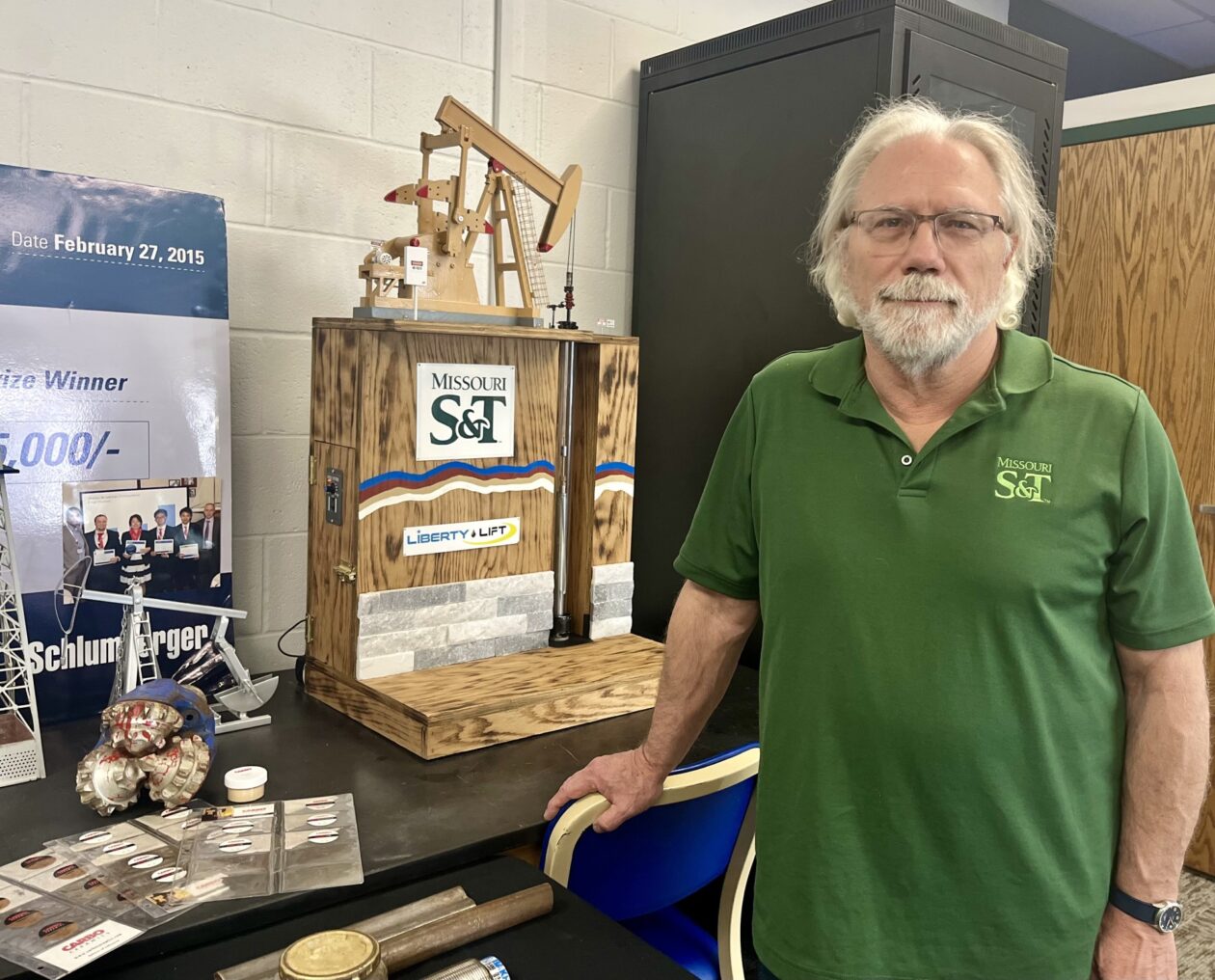Engineers Week: Q&A with David Carpenter, associate teaching professor of petroleum engineering
Posted by Greg Edwards

David Carpenter stands in the petroleum engineering section of S&T’s Earth Sciences and Engineering Discovery Zone. Photo by Greg Edwards/Missouri S&T.
David Carpenter joined the Missouri S&T faculty in January 2024 as an associate teaching professor of petroleum engineering. Here is a Q&A with Carpenter in commemoration of National Engineers Week 2025.
How would you explain what petroleum engineers do?
Geologists and geophysicists find oil and gas through exploration. Petroleum engineers move the oil and gas to the surface for sales. That means they confirm it’s there by drilling and testing a well. They determine the best way to develop the oil and gas reservoir, make sure it is commercially viable, build the infrastructure and produce it.
What aspects of this field do you find the most fascinating?
I love laying hands-on equipment, and I’ve had a lot of field jobs involving drilling, completing and producing wells. For me, it always felt like a vacation when I had an excuse to go to the field.
You joined the Missouri S&T faculty in 2024 after working in industry roles for about four decades. How does it feel to make this career change?
I’ve always liked working with young engineers. In my last job, I approved the training requirements and met with all the young engineers. It’s obviously different, but I really enjoy helping prepare engineers for industry.
The theme for National Engineers Week 2025 is “Design Your Future.” How does your work educating the next generation of petroleum engineers fit with this theme?
We’ve had a lot of change over the past four decades. To be successful, you must invest in yourself, build a personal network and be flexible. I try to translate those life lessons into my engagements with students and build courses to encourage those skills.
What advice would you have for students interested in studying petroleum engineering?
Oil and gas will be a significant part of the global energy supply for the foreseeable decades. Demand from developing countries will outstrip the world’s ability to add renewable energy sources. But still, pursue a petroleum engineering career because it fascinates you, not because it pays well. Petroleum engineering has always been at the top of the pay scale for engineering, but it comes at a price. There is a lot of uncertainty due to the geopolitics of oil supply and demand. However, if you focus on skills and flexibility, you can manage those ups and downs and have a very rewarding career.
Leave a Reply